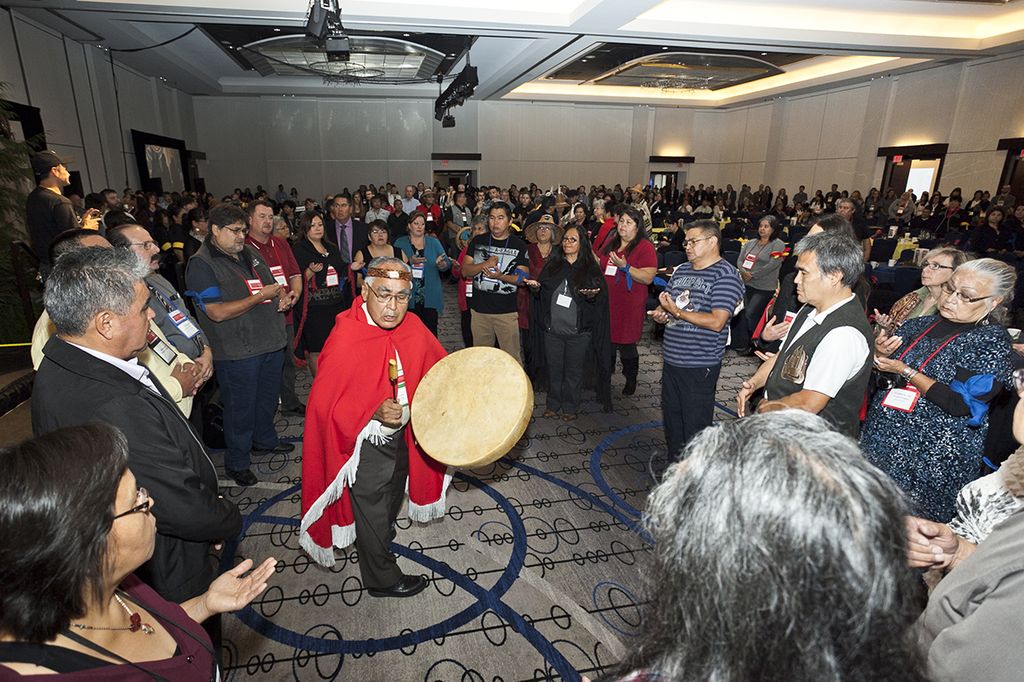
For Canada's Aboriginal communities, life expectancy and health outcomes continue to lag behind the national average. In an effort to help overcome this disparity, MNP has launched the Operation Blue Sky: Aboriginal Health Initiative, and incentive-based competition that will award up to $35,000 in prizes to anyone who can offer innovative solutions to this persistent problem.
And they are hardly alone in looking to make positive changes happen. All across Canada, Aboriginal communities are also stepping up to address the problem of health care, quality of life, and life expectancy head on. Over the course of the past summer, for example, the National Collaborating Center for Aboriginal Health (NCCAH) participated in several provincial and federal conferences designed to the address current and future needs of Canada's health care system.
This included the Public Health 2015 conference, an annual gathering hosted by the Canadian Public Health Association (CPHA) that brings together professionals and policy-makers to discuss issues relevant to health and well-being. Taking place in Vancouver from May 25th-28th, this year's Public Health conference was a opportunity for the NCCAH - along with the five National Collaborating Centres for Public Health (NCCPH) - to take part in one of the most important national forums regarding the state of Canada's health care.

Elder Leonard George of the Tsleil-Waututh Nation welcomes the CPHA delegates to Public Health 2015. Credit: gathering-wisdom.ca
In the course of the conference, the NCCAH participated in a series of plenary discussions, panel presentations, networking events, and workshop sessions that allowed them to connect with professionals, government officials and health care providers from across the country, as well as share perspectives from Canada's Aboriginal population.
A particular highlight of the conference was the keynote address given by Joe Gallagher, the Executive Director of British Columbia's First Nations Health Authority (FNHA). Titled “The Dawn of a new era in BC First Nations health: Lessons from our story”, Gallagher's address reviewed the historical context of First Nations health in BC and the current unique health system being led by the First Nations Health Authority.
Key amongst these have been the creation of the position of Aboriginal Physician Advisor to provide support and guidance to federal and provincial governments regarding Aboriginal health. Another has been the establishment of Community Engagement Hubs across the province of BC, which have allowed people both on and off reserve to share their concerns and offer ideas for reform.
In a similar vein, the 7th Annual Gathering Wisdom for a Shared Journey conference was held a few weeks earlier, also in Vancouver. This event, which is hosted annually by the FNHA, brings together representatives of BC's First Nation Communities with federal and provincial leaders to discuss ways to improve health care for BC's Aboriginal citizens.

The 7th Annual Gathering Wisdom for a Shared Journey conference brought together representatives from over 200 of BC's First Nations to address the state of Aboriginal Health in Canada. Credit: gathering-wisdom.ca
Taking place on May 6th and 7th, the event featured several important presentations that highlighted how change is being made. It also reinforced the need for more direct participation by BC's First Nations in shaping their own expectations from the health care system and how services could be better implemented.
In addition, the NCCAH also participated in the 10th National Community Health Nurses Conference - which took place between June 22nd and 24th, in Winnipeg, Manitoba. This year's theme, which was "Blueprint for Action – Challenge the Status Quo!", was a chance for the NCCAH to display and share materials and products related to Aboriginal health in Canada with members of the healthcare industry.
Yes, the summer of 2015 has been a busy time for those dedicated to ensuring that disparities in life expectancy and health outcomes are addressed. From all this, it is becoming increasingly how our national health care system can and needs to be reformed. In short, it is only through collaborative relationships and mutual support that change can be made and Canada's health care can truly be thought of as "universal".
There is less than one week to go before Operation Blue Sky: Aboriginal Health Initiative closes to submissions. Have an idea on how health care can be improved for Canada's First Nations? Then click here to register and a chance to win up to $35,000 in prizes!
Top Image Credit: gathering-wisdom.ca








